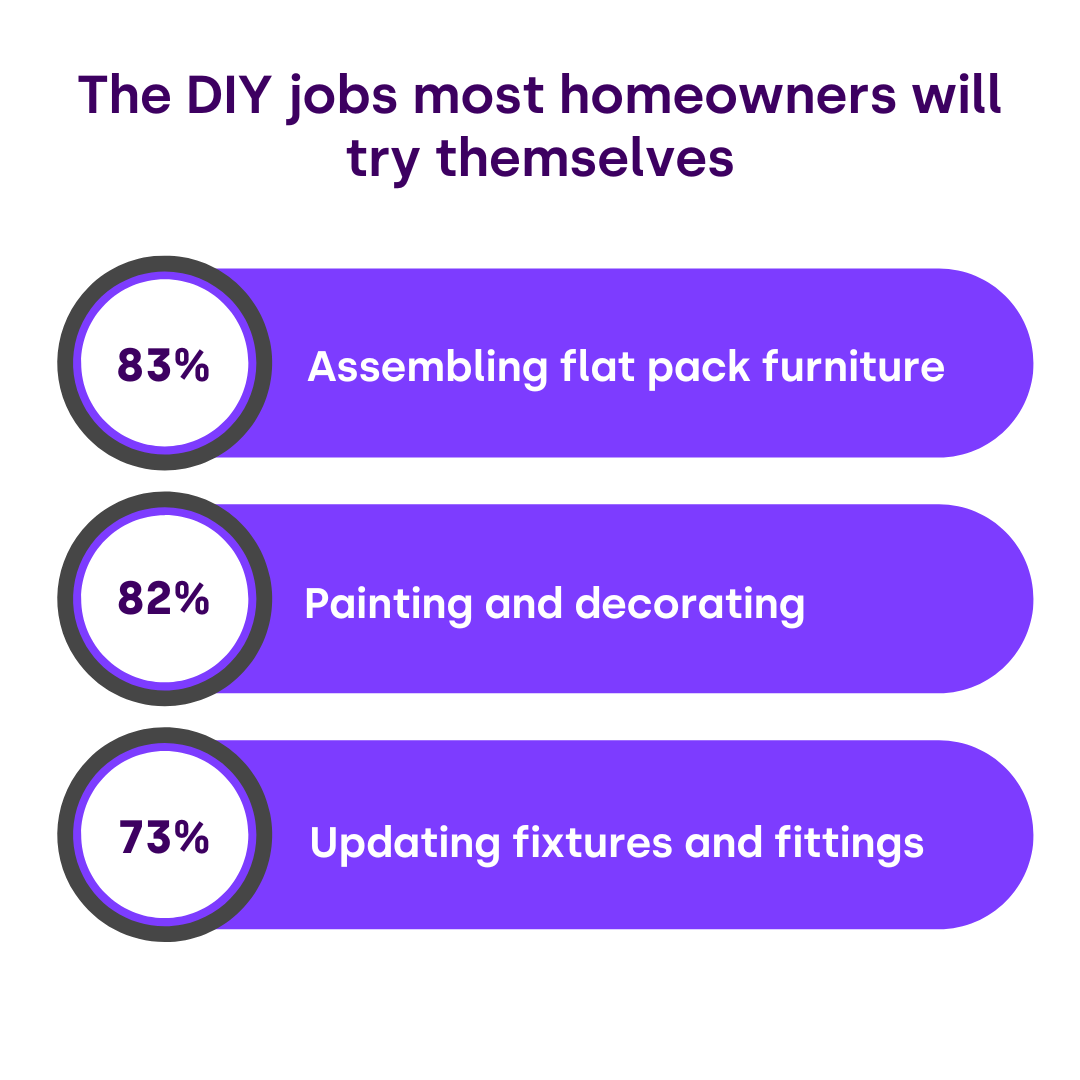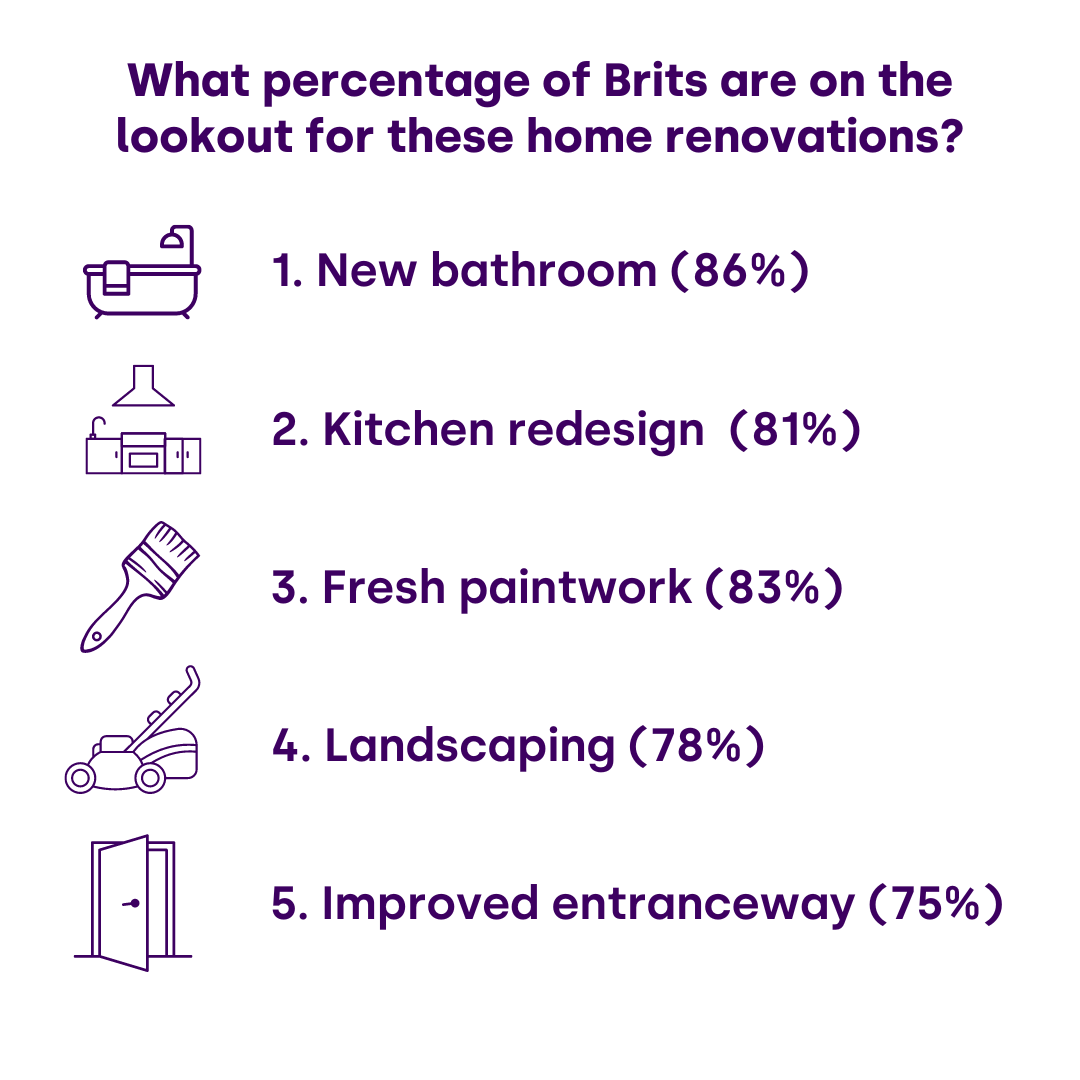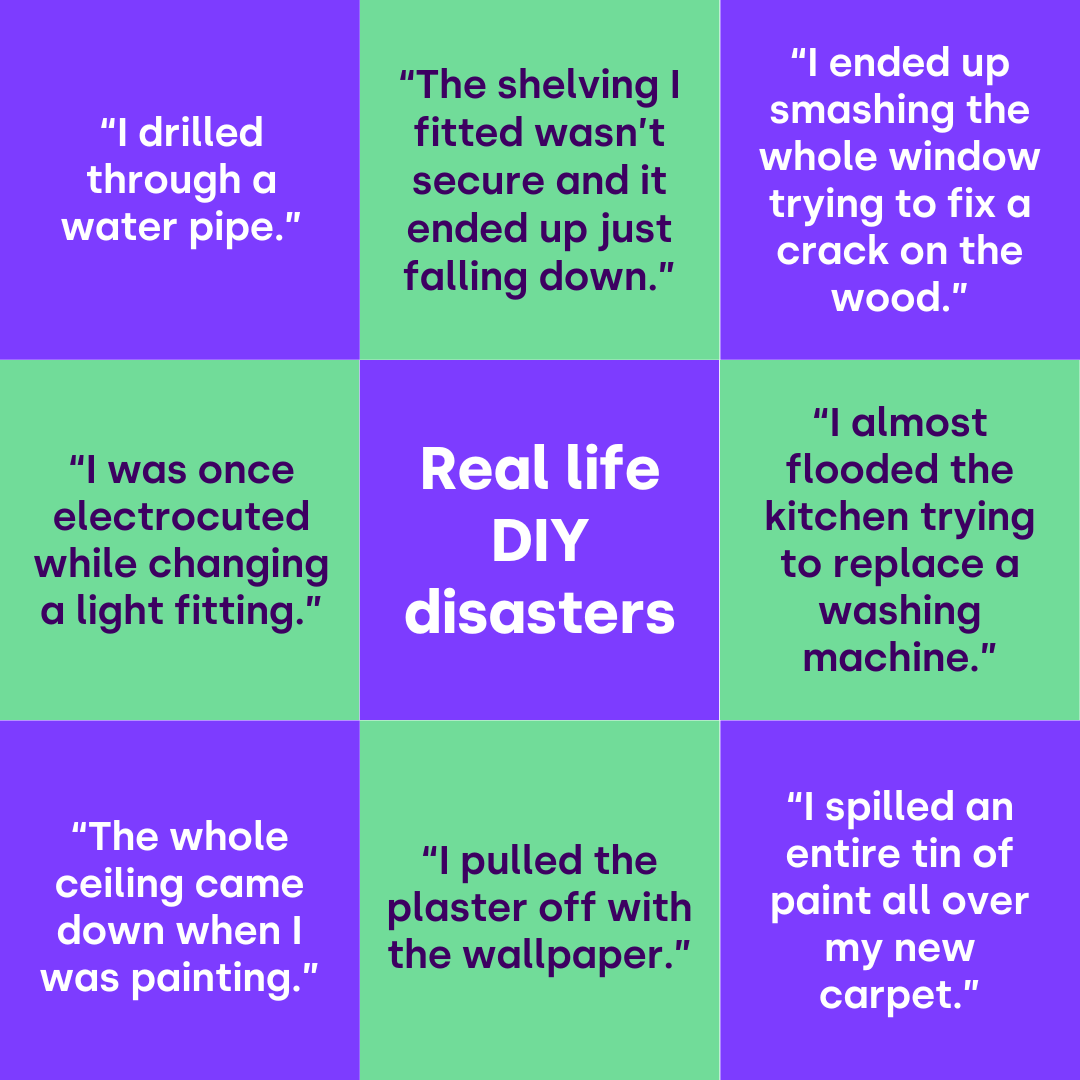
Get stuck in and save
Have-a-go Brits save over £1bn by DIYing!
Here at Novuna Personal Finance, we're on a mission to share the financial benefits of rolling your sleeves up and getting stuck in to a bit of DIY. Not only can it be a fun and fulfilling pastime, but having a go at home improvements yourself can also save cash. In fact - have-a-go homeowners are saving a jaw dropping £1 billion by undertaking projects themselves rather than calling in the experts.
Could you save thousands by doing it yourself?
Nearly half of homeowners estimate they've saved over £1,000 from taking on DIY projects themselves instead of calling a professional, with over a quarter of Brits (29%) saving between £1,000 and £5,000 and 19% saving over £5,000. And almost one in ten (8%) of homeowners say they have saved over £10,000 by DIYing!
Unsurprisingly, taking on more complex projects instead of hiring a contractor saves us even more cash. Those who said they were 'experienced' DIYers saved much more on average, with 36% saying they saved more than £5,000 compared to just 12% of non-experienced DIYers.
Even basic DIY tasks such as painting or updating old-fashioned fixtures can make a huge difference to your home.
What's stopping homeowners having a go at DIY?
Our research revealed that two thirds of homeowners in the UK (66%) admit they aren't comfortable doing DIY. There are loads of different reasons for this, but this crisis in confidence is stopping millions of Brits tackling home improvements themselves, which could save them money and potentially add value to their property.
Lack of skills - 55%
Over half of us simply don't feel we have the skills to take on DIY.
Money worries - 51%
51% of people say they don't have the cash required to make the changes they want to their homes.
No time - 46%
Nearly half say a lack of time prevents them from getting properly stuck into a project.
Confidence crisis - 31%
Despite maybe having the knowledge to do DIY, over 30% simply lack the confidence to take on a project.
Hates DIY - 18%
Nearly a fifth of people simply just don't enjoy DIY and would prefer to call in the pros.
Other - 3%
Including a house move being on the horizon, physical restrictions or struggling to find the right tradesperson to support.
Most common DIY tasks
While the majority of us wouldn't call ourselves experienced DIYers, there are still plenty of home improvement projects we're prepared to try ourselves.
8 in 10 (83%) would attempt to build flat pack furniture, though 14% would still choose to call a professional to help them!
Unsurprisingly, there are still some projects the majority of DIYers won't attempt:
- 83% won't take on an extension or conversion themselves
- 69% won't do electrical work
- 62% won't attempt joinery or carpentry
- 60% would always avoid plumbing
- 55% would never consider plastering themselves

Where to go for DIY advice
While over half of us (58%) turn to our parents for home improvement advice, you might be surprised to learn that parents are not always the most popular fonts of wisdom.
Brits are actually most likely to turn to YouTube first, with 64% preferring to watch videos online to find DIY advice.
53% speak to friends and 33% read blogs or guides, while 12% look to online influencers to help them get started on their home improvement projects.

Simple ways to nail your DIY projects
1. Make a plan
Write down everything you'd like to improve so you can create a plan. Work involving professional trades such as gas and electric work often needs to precede more cosmetic improvements like carpeting or flooring to avoid any costly accidents.
2. Create a budget
Work out how much every aspect of your renovation will cost so you can understand whether it will fit within your budget. Make sure you plan for a few unexpected costs to crop up, too.
3. Do what you can first
Even if you're planning to call in the professionals for major renovations, you could save a bit of money by doing some of the more simple tasks yourself (such as prep work or painting).
4. Shop around
Do your research to make sure you're getting a good price. Get a variety of quotes and estimates, including a range of large chains, local and independent contractors so you can compare costs.
5. Expect the unexpected
However long you think the work will take, double it! The work required might turn out to be quite simple or very complicated. You may uncover other jobs that need doing along the way too.
6. Don't cut corners
Remember the saying "it'll do, won't do". If you rush the job, you could only end up storing up more work (and expense) for yourself later. Try to buy the highest quality materials and tools within your budget for the same reason.
7. Start small
If you're fairly new to DIY, it can be a good idea to take on smaller projects before progressing to more prominent areas of the house. Give yourself time to learn and build your skills - it could avoid costly mistakes later down the line.
8. Find out the value of your home
Once the work is finished, check with a local agent or qualified surveyor to see if the improvements have added value to your home, especially if you are looking to sell, remortgage or seek equity release.
Improving your home could increase your property value
Even a small increase of 2% on to your home could generate thousands of pounds in profit when it comes to selling your home.
And there are plenty of upgrades buyers want to see, with kitchen and bathroom renovations the top things Brits want to see when looking for a home.
The upgrades most likely to be on a homeowners' DIY waiting list are similar, too, with 51% of homeowners wanting to update their kitchen and 50% hoping to improve their bathroom.


“Undertaking bigger DIY projects, like replacing a kitchen or bathroom, could add up to 10% depending on the location of your property. With more retailers offering flexible finance, big ticket projects are also looking more affordable, which should encourage budding DIY enthusiasts to roll up their sleeves and get stuck in.”
Theresa Lindsay
Personal Loans Expert
Novuna
The real cost of DIY disasters revealed
So what happens when DIY goes wrong? DIY mistakes - ranging from spilled paint to causing a major leak - are costing homeowners an eye watering £446 million in repairs.
A third of the nation (32%) fork out up to £200 a time to repair DIY disasters - with 29% of Gen Zers spending between £200 and £600 to fix DIY blunders.
You might think a DIY calamity would put home improvers off attempting another project, but our research found this was not the case. In fact, we discovered that the vast majority - 69% - would attempt DIY again in the future despite making a past mistake.
What to do if you've had a DIY debacle
If you've had a home renovation fiasco, here are some simple tips to get your project back on track:
- Don't wait to fix the mistake. 26% of people say they wouldn't fix a mistake straightaway, but this could just end up causing a much bigger problem.
- Put your pride aside and call in the professionals if you're not sure you can fix the problem. While 54% would fix a mistake themselves, 33% of people would always call a tradesperson to fix a mistake they made while doing DIY.
- Do your research. You may find many other DIYers have had the same problem, and can share how they fixed it quickly, easily and cheaply.
- Enjoy getting creative. Most smaller DIY mistakes can be easily covered up and sorted within a small amount of time - it's all part of the fun of DIY.



Find the best way to fund your home improvements
Whether you're trying to remedy a renovation mishap or you're planning your next big project, you could borrow up to £35,000 with a Novuna Personal Finance loan. Rates start from just 6.1% (£7,500-£25,000).
Home improvement loansAbout our study
We surveyed 2,040 homeowners aged 23-50 to find out their views on all things DIY.
Respondents were asked to provide an estimated figure of the financial cost (£GBP) that they would expect to spend fixing a mistake made whilst renovating. The £446m figure was calculated by taking the most popular cost bracket (32% spending up to £200 in repairs), scaling this by UK homeowners aged 23 to 50 according to research by ONS and Statista, to determine the cost accumulated by around one third of UK homeowners.
Respondents were also invited to provide an estimated figure of how much money (£GBP) that they have saved by doing home improvements themselves. The £1bn figure was calculated by taking the lower end figure from the most popular cost bracket (15% saving between £1,001 to £2,500 on DIY), scaling this by UK homeowners aged 23 to 50 according to research by ONS and Statista, to determine the cost accumulated by 15% of UK homeowners.

